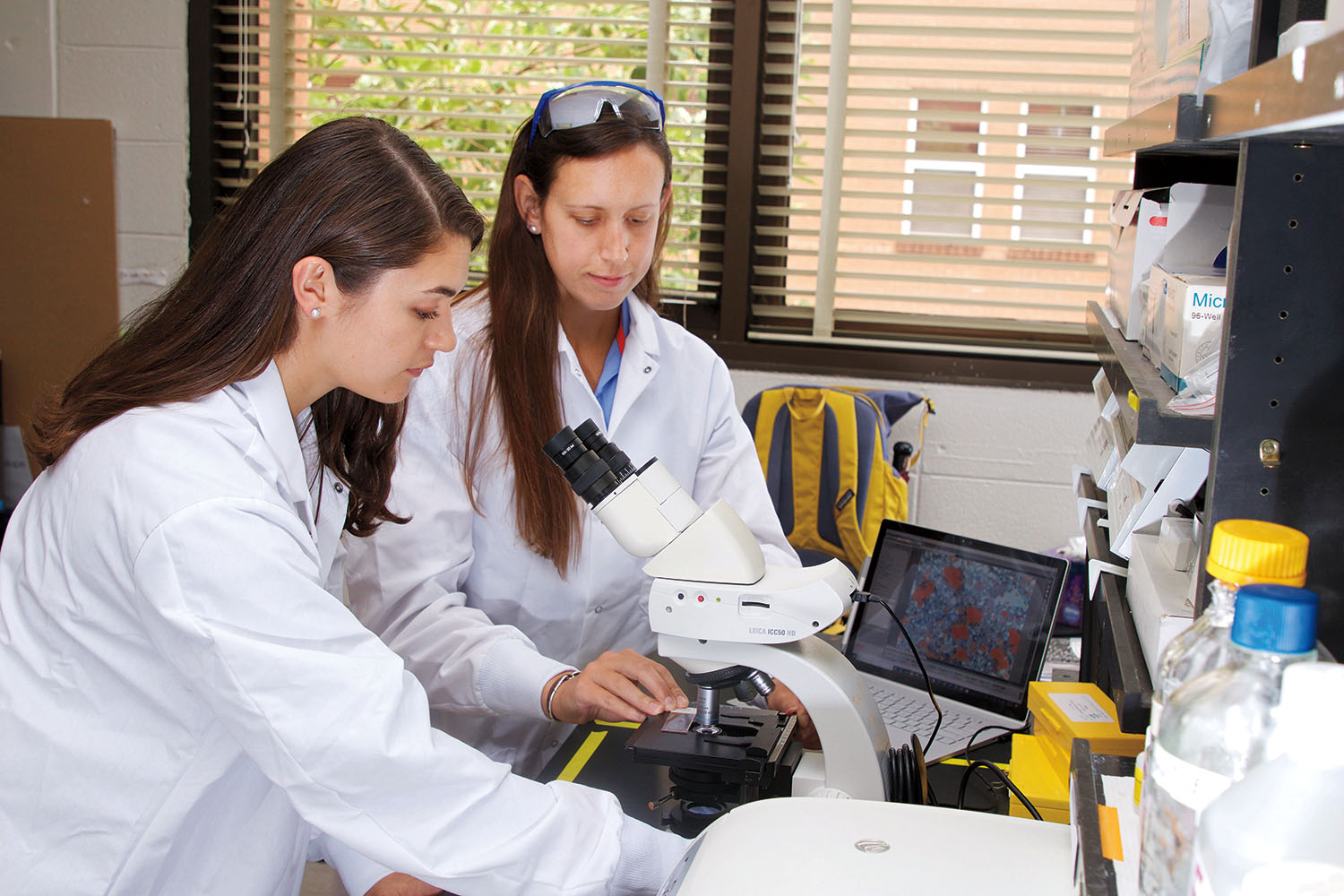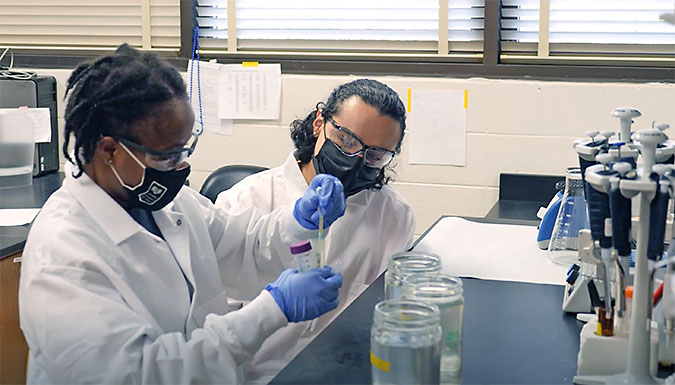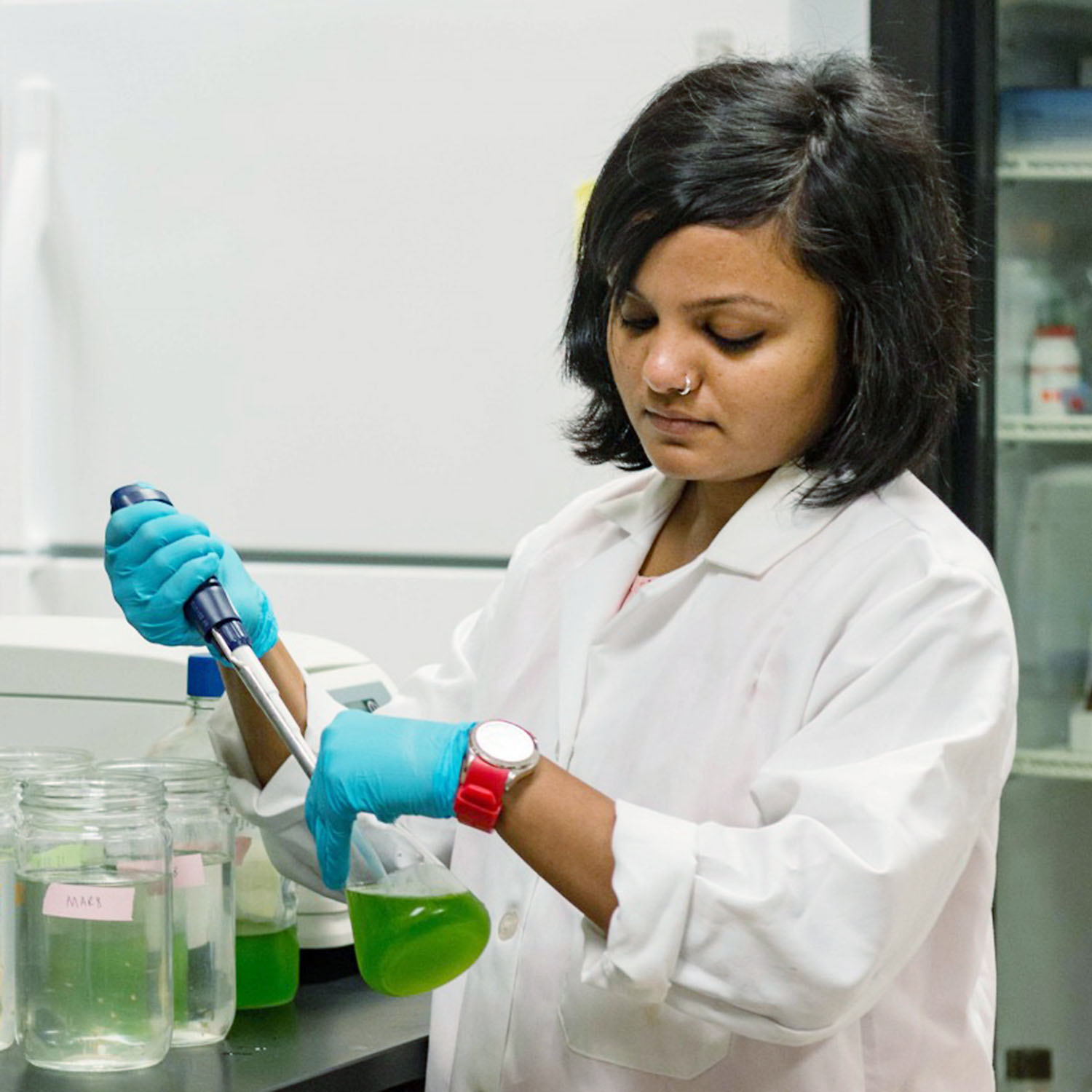Plan of Study: Biological Sciences
 Biologists study all aspects of life, from molecules to ecosystems. The Department of Biological Sciences offers M.S. and Ph.D. degrees in biological sciences.
Biologists study all aspects of life, from molecules to ecosystems. The Department of Biological Sciences offers M.S. and Ph.D. degrees in biological sciences.
Research in this program reflects this breadth with specialties in genomics, evolutionary biology, physiology, integrative biology, developmental biology, neurobiology, cancer biology, immunology, toxicology and more, across model organisms such as plants, animals and microbes.
Facilities supporting this research include the Clemson Light Imaging Facility, the Palmetto High Performance Computing Cluster, the Clemson University Genomics and Bioinformatics Facility, the Clemson Experimental Forest and the Eukaryotic Pathogens Innovation Center.
Graduate students in biological sciences work closely with their major advisor and graduate committee to craft a plan of study that is geared toward the student’s interests. Both the M.S. and Ph.D. degrees in biological sciences allow for maximum flexibility, with coursework that encompasses the breadth and depth of associated life science areas.

Program Overview
What Do Our Students Say About Our Program?
“There are a lot of great amenities that come with Clemson," says Cierra Sullivan, a graduate student in the department. “The different high-tech microscopes that we have, the agricultural services lab, the greenhouses, the experimental forest. It’s really great to have all those things so closely situated to campus.” Watch the video to get an overview of the biological sciences graduate program at Clemson.
Watch the VideoPlans of Study
 For more information about degree requirements and curriculum, review the most recent Graduate Student Guide (PDF) for the Department of Biological Sciences. Descriptions for courses within our department can be found in the University’s course catalog.
For more information about degree requirements and curriculum, review the most recent Graduate Student Guide (PDF) for the Department of Biological Sciences. Descriptions for courses within our department can be found in the University’s course catalog.
Master of Science
M.S. students in biological sciences must complete a minimum of 30 credit hours, including:- 24 formal course credits, at least 12 of which are at the 8000 level.
- A three-credit core course in either molecular cellular and developmental biology or ecology and evolutionary biology.
- Four of the 12 course credits should come from seminar.
- Four of the 12 course credits should come from Journal Club.
- Six thesis research credits.
- All teaching assistants must take the GTA colloquium.
Doctorate (with prior M.S. degree)
Ph.D. students entering the program who already have an M.S. degree must complete 30 credit hours:
- At least 18 of the 30 credit hours must be research.
- At least 12 of the 30 credit hours must be formal course credits. This includes a three-credit core course in either molecular cellular and developmental biology or ecology and evolutionary biology.
- All teaching assistants must take GTA colloquium.
- Six course credits should come from seminar.
- Six course credits should come from Journal Club unless this requirement was in part fulfilled during attaining a M.S. degree.
Doctorate (with prior B.S./B.A. degree)
Ph.D. students entering with only a B.S./B.A. degree must complete 60 credit hours:
- At least 18 of the 60 credit hours must be research.
- At least 12 of the 60 credit hours must be formal course credits. This includes a three-credit core course in either molecular cellular and developmental biology or ecology and evolutionary biology.
- At least half of the 60 credit hours are at the 8000-level or above.
- All teaching assistants must take GTA colloquium.
- Six course credits should come from seminar.
- Six course credits should come from Journal Club.
- No more than 60 credits need to be included in the plan of study.
